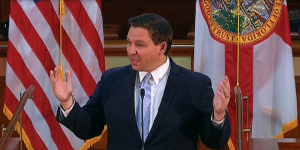No one is above the law, especially the laws of nature.
Yet those who make efforts to ignore pandemic restrictions and recommendations seem to think they’re entitled to behave this way, according to a new psychological study published in the journal Personality and Individual Differences.
Researchers found that people who are “higher in psychological entitlement” were less likely to comply with coronavirus guidelines compared with those with “lower” entitlement, the authors wrote.
Authors describe psychological entitlement as “a personality characteristic whereby an individual feels more deserving of positive outcomes than other people,” explained Rachel J. Schlund, a Ph.D. student at Cornell University.
“We initially became interested in this topic because we recognized the importance of motivating individuals to comply with the COVID-19 health guidelines to keep themselves and others healthy and reduce the virus’ spread,” Schlund told PsyPost.
She explained that prior studies have “demonstrated that feelings of psychological entitlement can lead others to fail to follow the rules, especially rules they perceive are unfair.”
At the beginning of April, researchers surveyed 201 Americans about their safety habits during the pandemic, and also answered questions designed to assess their personal level of entitlement — answering whether they agreed or disagreed with statements such as “I honestly feel I’m just more deserving than others” and “People like me deserve an extra break now and then.”
“As we predicted, people higher in psychological entitlement reported less compliance with the COVID-19 health guidelines than people lower in psychological entitlement. For example, people higher in psychological entitlement were more likely to report that they would still attend parties if they felt like it, and that they were not engaging in social distancing, making efforts to wash their hands more, or even simply following the rules put in place by their state,” said Schlund.
People prone to bypassing health protocols were also more likely to “[believe] the threat of the virus was overblown and that they were not very concerned” about potential consequences and ignoring guidelines, she added. Paradoxically, the same group also reported higher rates of engaging in other health habits, such as flossing or wearing sunscreen. This suggested that “refusal to follow health guidelines was specific to pandemic-related suggestions.”
Notably, the entitled group was also more likely to have had COVID-19 already, indicating that their noncompliance “may have had negative consequences for them,” according to Schlund.
The survey was repeated with 502 participants in May, which supported previous findings. A final poll of 301 individuals in mid-July asked an additional question: whether they cared what other people thought when they avoided health measures.
However, researchers found that attempts to appeal to self-image concerns “did not increase compliance.” In fact, said Schlund, when prompted to evaluate how others might perceive their entitlement, they doubled down instead. On the flip side, those with lower entitlement ramped up compliance in the face of possible public scrutiny.
Schlund suggests these findings could inform how health campaigns promote guidelines.
“This is an important finding because it suggests that not all cues to action or messages to persuade individuals to follow the guidelines work uniformly for all people and may even produce the opposite effect for some,” she said. “The general public should be aware that some individuals, specifically, individuals with a higher sense of entitlement, are less likely to follow the guidelines. Thus, people should take precautionary measures.”



















